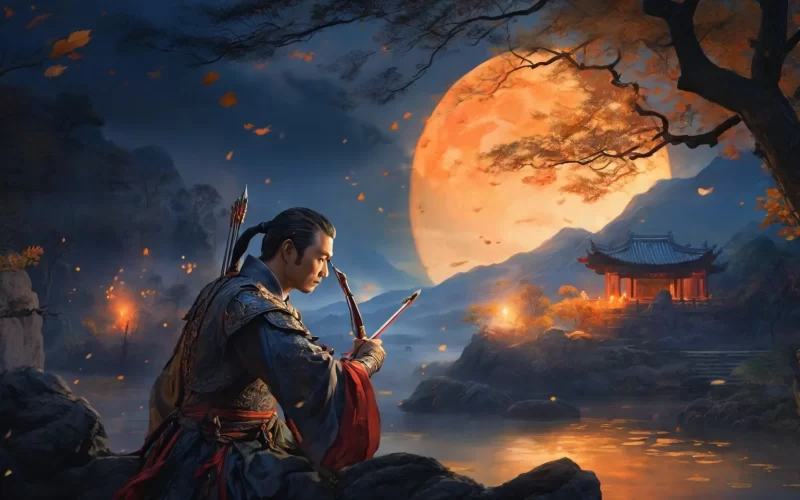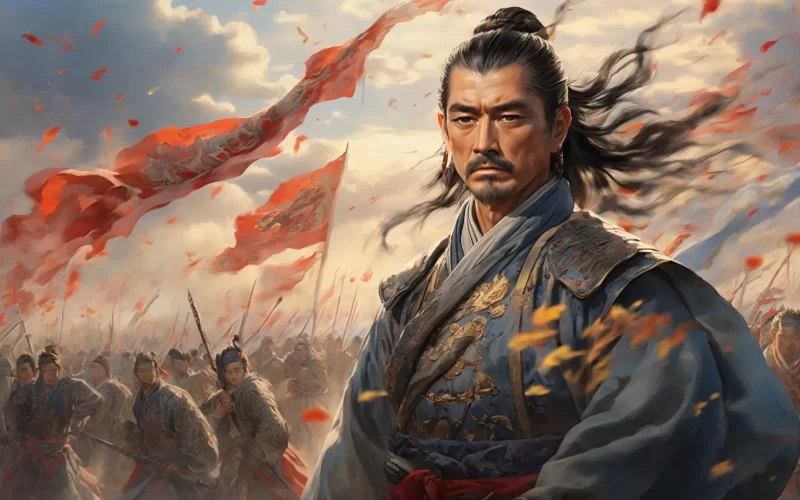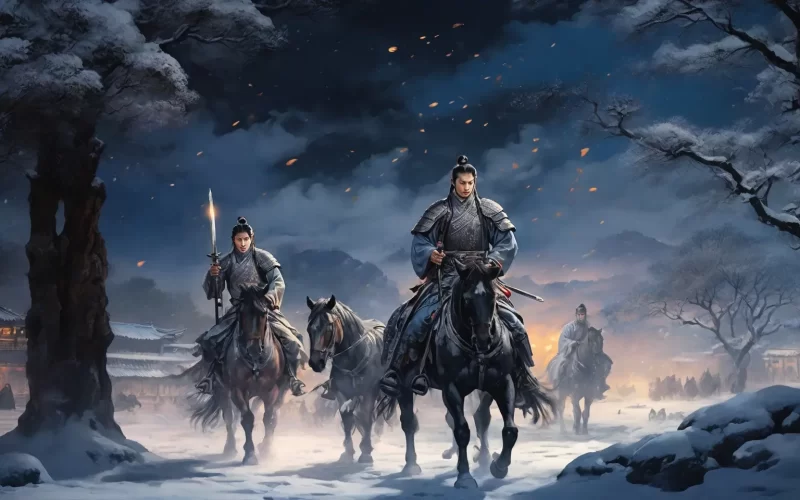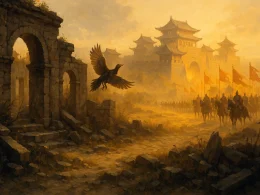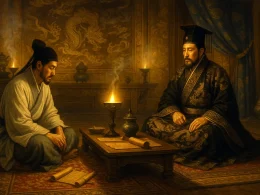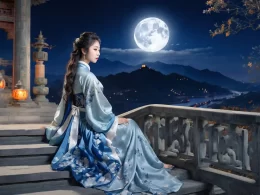The woods are black and a wind assails the grasses,
Yet the general tries night archery --
And next morning he finds his white-plumed arrow
Pointed deep in the hard rock.
Original Poem
「塞下曲 · 其二」
卢纶
林暗草惊风, 将军夜引弓。
平明寻白羽, 没在石棱中。
Interpretation
This second poem in the series depicts a general's heroic night hunt, blending tension, mystery and wonder. Though brief, it presents a compact narrative with vivid imagery. Through this nocturnal expedition, the poem showcases the general's decisiveness, strength and extraordinary skill, imbued with romanticism and heroic spirit.
First Couplet: "林暗草惊风,将军夜引弓。"
Lín àn cǎo jīng fēng, jiāng jūn yè yǐn gōng.
Dark woods, grass startled by wind; the general draws his bow at night.
The opening creates mysterious tension. "Dark woods" and "startled grass" suggest lurking danger, with the verb "startled" implying possible hidden beasts. Though not explicitly showing the shot, "draws his bow" alone demonstrates the general's battle-ready composure.
Second Couplet: "平明寻白羽,没在石棱中。"
Píng míng xún bái yǔ, mò zài shí léng zhōng.
At dawn they seek the white-feathered arrow - sunk deep in stone crevices.
The scene shifts to morning. The "white feathers" (arrow) are found not in prey but embedded impossibly in rock. This hyperbole, presented matter-of-factly, conveys supernatural marksmanship, adding legendary quality.
Holistic Appreciation
With minimal brushstrokes, the poem paints a dramatic night hunt. The first couplet builds tension - dark woods, rustling grass, the general drawing his bow. The second reveals the astonishing outcome - no prey, just an arrow sunk in stone. Combining realism with exaggeration, the general's heroism shines through this single shot. Without depicting combat, the poem achieves both lyrical intensity and heroic grandeur.
Artistic Merits
- Masterful tension: The opening instantly immerses readers in suspense.
- Dynamic stillness: Rustling grass implies action; the stone-piercing arrow demonstrates superhuman skill.
- Economical yet rich: Four lines cover night-to-dawn with vivid scene changes.
- Romantic exaggeration: The impossible arrow shot, described realistically, enhances the poem's power.
Insights
This night hunt epitomizes the general's extraordinary prowess and poise, celebrating heroic ideals. It reminds us that true heroism often speaks through actions rather than words. The poet's concise yet potent depiction demonstrates how minimalism can contain maximum artistic tension - a lesson in conveying strength, speed and spirit through essential details.
Poem translator
Kiang Kanghu
About the poet

Lu Lun (卢纶), 748 - 798 A.D., was a native of Yongji, Shanxi Province, and was one of the "Ten Scholarly Men of the Dali Dynasty". Lu Lun was a judge of the Marshal's Office in Hezhong, and he served as the inspector of the Ministry of Revenue. His poems were more eloquent and liberal, with many works of farewells and rewards, as well as works reflecting the life of soldiers. Five volumes of his poems are recorded in Quan Tang Shi (All Tang Poems).





